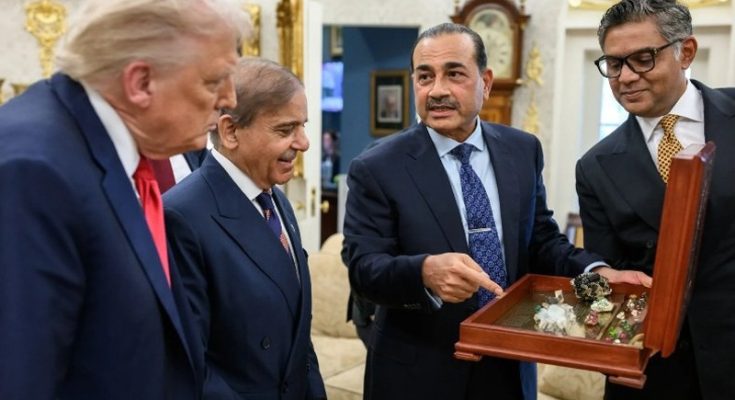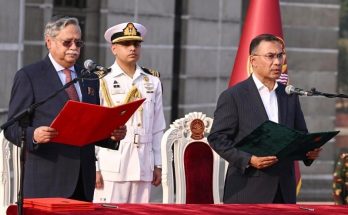#Pakistan# US# Rare Earth# strategic partnership
IBNS-CMEDIA: Pakistan and the United States have entered a new phase of economic and strategic cooperation, advancing towards the implementation of an agreement to export rare earth minerals, a move that could significantly reshape Pakistan’s position in the global critical minerals market, Dawn reported.
According to the report, US Strategic Metals (USSM), which signed a Memorandum of Understanding (MoU) with Pakistan in September, has dispatched its first consignment of mineral samples to the United States as part of the agreement.
The American company plans to invest nearly $500 million to establish mineral processing and development facilities in Pakistan, marking one of the largest private-sector mineral investments in the country’s history.
Sources in Washington told Dawn that the shipment marks a crucial step towards Pakistan’s integration into the global supply chain for critical minerals, a sector of rising importance for both industrial growth and national security.
The consignment, prepared in coordination with Pakistan’s Frontier Works Organisation (FWO), includes antimony, copper concentrate, and rare earth elements such as neodymium and praseodymium.
In a statement, USSM called the delivery “a milestone in the Pakistan-US strategic partnership,” noting that the MoU “establishes a roadmap for cooperation across the entire mineral value chain- from exploration and processing to establishing refineries within Pakistan.”
USSM CEO Stacy W Hastie said the collaboration “opens an exciting chapter of cooperation between USSM and Pakistan’s Frontier Works Organisation, aimed at expanding trade and deepening friendship between our two countries.”
As per Dawn, the agreement could provide Pakistan a foothold in the lucrative global critical minerals market, potentially generating billions in revenue, creating thousands of jobs, and enabling technology transfer.
Pakistan’s untapped mineral reserves, estimated at around $6 trillion, make it one of the world’s richest in natural resources — including vast deposits of copper, gold, and rare earths vital for electric vehicles, renewable energy, and defense technologies.
For the United States, the partnership represents a step towards securing access to essential raw materials while reducing reliance on dominant external suppliers that currently control much of the global mineral supply chain.
Opposition raises alarm over ‘secret deals’
However, the agreement has drawn sharp criticism from Pakistan’s opposition party, the Pakistan Tehreek-e-Insaf (PTI).
PTI Information Secretary Sheikh Waqqas Akram accused the government of striking “secret and lopsided deals” with Washington and demanded full transparency.
“Such reckless, secretive agreements will further inflame the already volatile situation in the country,” Akram said, urging the government to place all details before parliament and the public.
“PTI will never accept any deal made at the expense of the people and the state’s interests,” he added.
Akram also referred to a recent Financial Times report alleging a proposal to offer Pasni Port to the US, calling it a dangerous precedent.
Military sources, however, rejected the report’s claims, clarifying that the proposal was merely “a commercial idea” and not official policy, Dawn reported.





